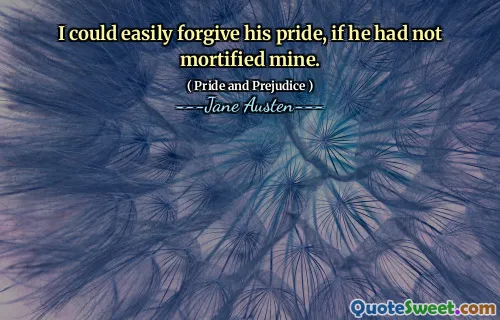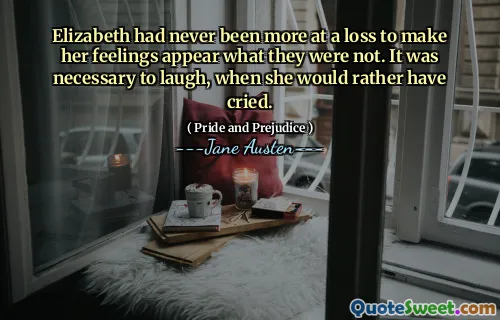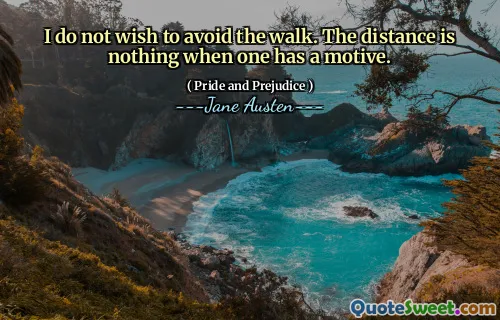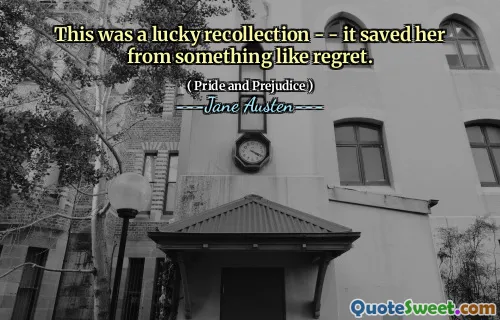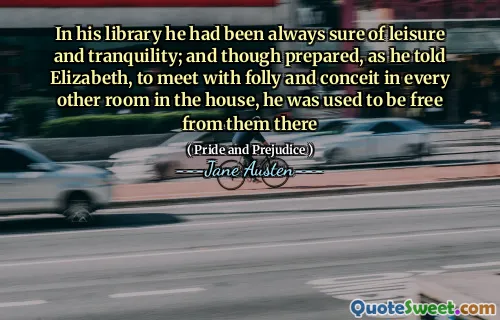However, he wrote some verses on her, and very pretty they were. And so ended his affection, said Elizabeth impatiently. There has been many a one, I fancy, overcome in the same way. I wonder who first discovered the efficacy of poetry in driving away love! I have been used to consider poetry as the food of love, said Darcy. Of a fine, stout, healthy love it may. Everything nourishes what is strong already. But if it be only a slight, thin sort of inclination, I am convinced that one good sonnet will starve it entirely away.
In the conversation, Elizabeth expresses her impatience, suggesting that the end of a romantic affection can be quite common and even humorous. She ponders the origins of poetry as a tool for diminishing love, hinting at a playful skepticism about its impact on emotions. This indicates her belief that poetry might not hold the power to sustain deep affection.
Darcy, however, argues that while poetry can indeed nourish a robust love, it may also swiftly extinguish weaker feelings. His perspective suggests that poetry serves as a catalyst; strong love thrives on it, whereas fleeting affections might be easily dismissed by a single thoughtful poem. This exchange highlights contrasting views on the connection between love and poetry in relationships.
